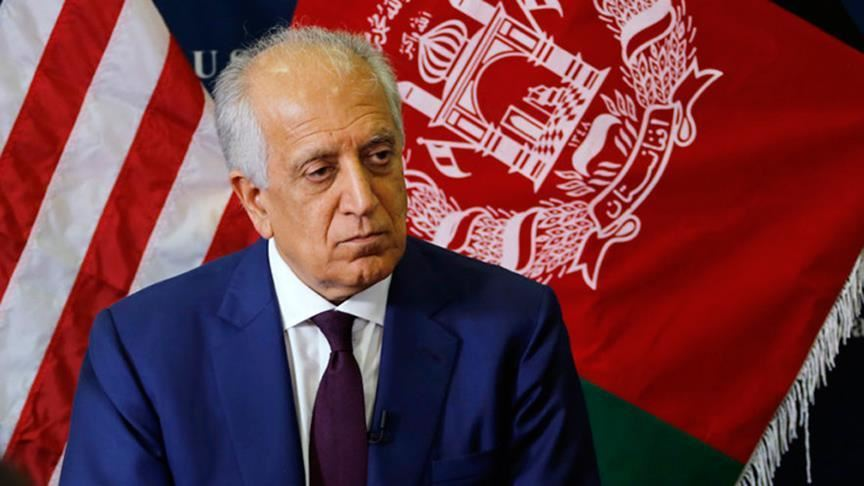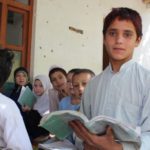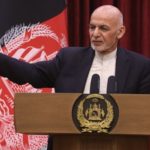The US Special Representative for Afghanistan Reconciliation Zalmay Khalilzad has called for a swift reduction in violence and implementation of a nationwide ceasefire on his most recent trip to gather support to push the stalled Afghan peace process forward.
On Friday US special envoy Zalmay Khalilzad met with Gen. Qamar Javed Bajwa, Chief of Pakistan’s Army Staff, and discussed “issues of mutual interest and overall regional security situation including Afghan reconciliation process,” according to Pakistan’s armed forces spokesman.
According to the Pakistan statement, Bajwa reiterated that “our (Pakistan’s) support towards peace process is a manifestation of our goodwill towards the cause,” the spokesman said.
Khalilzad, who is on a tour to the region as part of Washington’s diplomatic efforts for peace in Afghanistan, earlier on Wednesday met Mullah Abdul Ghani Baradar, the deputy leader of Taliban, in Doha, where they discussed accelerating the release of prisoners between the Taliban and the Afghan government to help cement concrete steps for the start of intra-Afghan talks.
“Lengthy meeting overnight with Mullah Baradar and his team in Doha. We sought progress on a range of topics: a reduction in violence, humanitarian ceasefire as demanded by the international community to allow for better cooperation on managing COVID-19 pandemic in Afghanistan, acceleration of prisoner releases by both sides, actions necessary to secure the freedom of U.S. citizen Mark Frerichs, regional and international support for the peace process, and movement to intra-Afghan negotiations ASAP,” Khalilzad tweeted, adding: “Will meet again after my trip to India and Pakistan.”
Meanwhile, the State Ministry on Peace Affairs has expressed hope that the release of prisoners paves the way for a ceasefire in the country.
“The Afghans expect that the prisoner release process will lead to an environment of trust, the start of a ceasefire, and intra-Afghan talks,” said Najia Anwari, a spokeswoman for the State Ministry on Peace Affairs.
“The US has two options, the US can argue that the peace agreement America signed with the Taliban has been implemented and neither side has launched operations against the other, but if there is a change in the US policy for prolonging its presence in Afghanistan, in that scenario, too, the US will argue that the Taliban did not accept peace talks with the Afghan government,” said Sami Yousufzai, a freelance journalist in Doha.
The Afghan government released about 31 Taliban prisoners on Wednesday from Puli-e-Charkhi prison in Kabul, bringing the number of released Taliban prisoners to 933, according to the National Security Council’s office.
The Taliban also released a new batch of Afghan government prisoners in western Afghanistan.
The Taliban’s spokesman Suhail Shaheen tweeted:
”As part of the series of prisoners’ release, the Prisoners’ Commission of (the Taliban) released 48 soldiers of the (Afghan govt). in Herat province today and yesterday. They were given clothes and transportation fare. This series will continue in the time to come as well, inshaAllah.”
The US-Taliban deal called for the Taliban to release up to 1,000 government prisoners, and for the Afghan government to free up to 5,000 Taliban prisoners before peace talks that were to begin on March 10.
The Afghan government made an earlier pledge to release a total of 5,000 Taliban prisoners but only after the start of the intra-Afghan negotiations, and if violence was reduced in a way that leads to a countrywide ceasefire.
The Afghan Independent Human Rights Commission (AIHRC) in a report released on Friday said that its new findings show that, contrary to the expectations of the Afghan people, violence and armed attacks have not diminished in the first ten days of Ramadan, but have continued.
“In the first ten days of this month, 43 civilians were killed (including three women and two children) and 73 others (including 19 women and 18 children) were injured as a result of the roadside mine blasts, terroristic attacks, shootings, targeted attacks, rocket attacks and suicide attacks. The total number of casualties is 116,” said the AIHRC.
“The Taliban is responsible for the deaths and injury of 68 civilians: 29 killed and 39 wounded,” said the AIHRC report.
“In the first ten days of Ramadan, 116 civilians became the victims. The Taliban are involved in ’68 percent’ of the civilian casualties,” said Zabiullah Farahang, head of the media department of AIHRC.
Meanwhile, in related news, there are reports in the foreign media that Mullah Mohammad Yaqoub, the son of the Taliban’s founding leader Mullah Mohammad Omar, has been awarded the chairmanship of the Taliban’s military commission.











